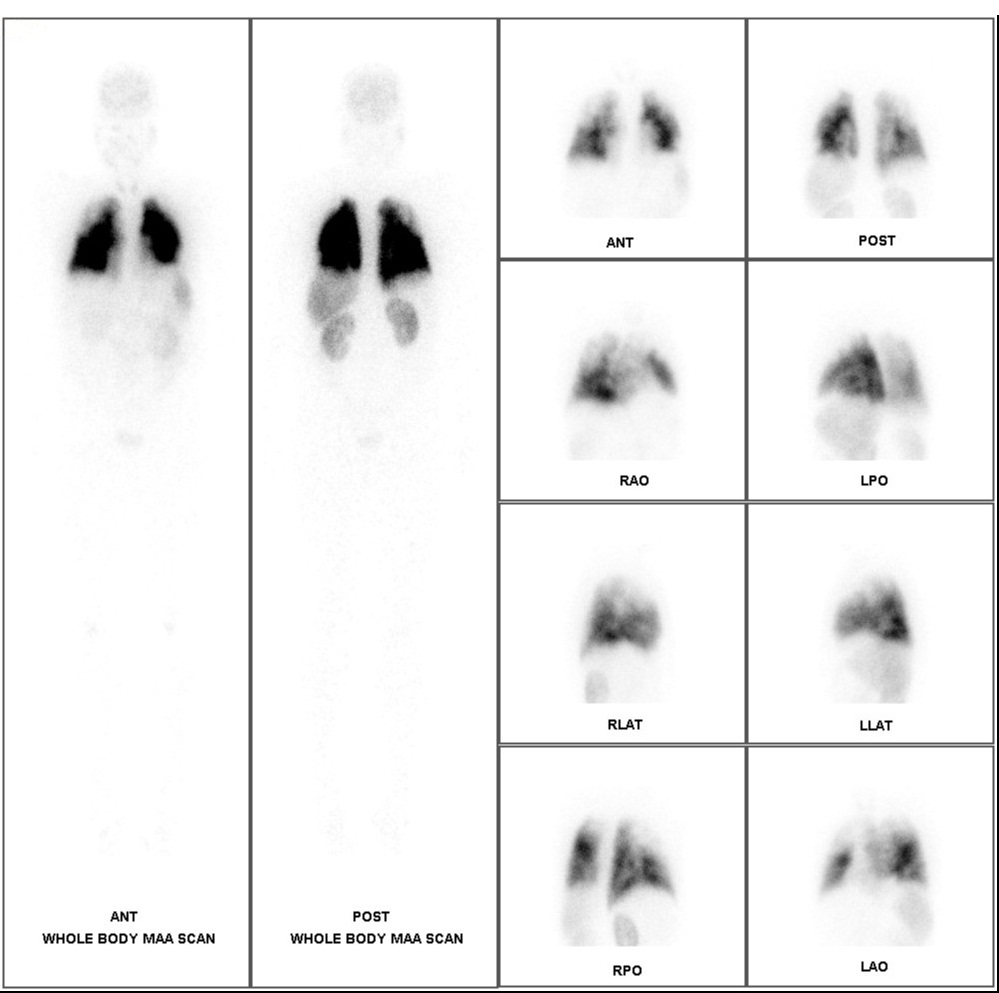Because hepatopulmonary syndrome (HPS) is a rare disease, we built the Canadian HPS Program so that the diagnosis and care of patients with this condition can be centralized. By doing this, we have been able to establish expertise in the diagnosis, testing, and care of patients with hepatopulmonary syndrome.
Diagnostic testing: Our clinic offers comprehensive evidence-based specialized testing for HPS patients. This includes:
- HPS positional testing (for orthodeoxia)
- Non-invasive shunt testing (on 100% FiO2)
- Exhaled Nitric Oxide Testing (at 200ml/sec exhalation rate for alveolar fraction)
- Contract echocardiography
- MAA (technetium-labeled macroaggregated albumin lung perfusion scanning) (with Abrams analysis)
Expert care: our program has seen over 200 patients referred for hepatopulmonary syndrome. At any one time, we follow about 15-20 patients with hepatopulmonary syndrome and about 40-50 patients with pre- (or subclinical) hepatopulmonary syndrome. We also follow several patients who have successfully received liver transplants.
Close monitoring and follow up: our clinics offer regular follow-up with a multi-disciplinary team, and maintains a close link with liver transplant centers, with whom we collaborate to optimize outcomes of liver transplantation in HPS.

Research
We have a large HPS patient registry, and we lead and collaborate on several different research studies with centers around the world. Patients seen in our clinic are invited to join the registry and to take part in our research initiatives. We are focused on describing the natural history and pathophysiology of HPS through clinical and basic science studies, establishing prognostic indicators, studying methods to optimize transplant outcomes, and establishing and testing medical therapies.
For more information on our research, including past publications, please see our For Researchers section.